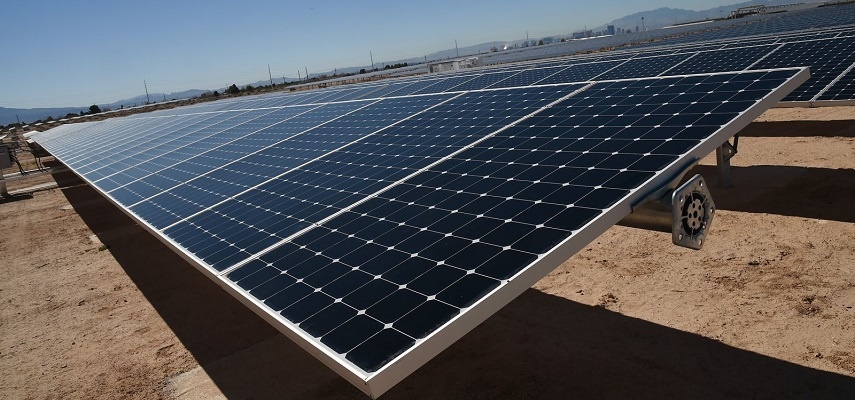
Are you tired of paying for high electricity bills for your business? Have you embarked on the path of environmental sustainability and are wondering how to incorporate it in your business? Worry not. Studies show that majority of businesses in the United States are going the solar way to cut down energy costs and be more environmentally sustainable.
As more people are shifting to solar energy for their day-to-day activities, there also more solar energy providers helping companies make the transition to sustainable energy source. For instance, if you are in Florida, Miami solar power providers can help you lower your energy bill, get incentives for switching to renewable energy sources, and reduce your carbon footprint.
With most of you, the idea of going solar is quite clear in your mind but the question remains: ‘How do I transition? Where do I start? What do I need to consider as I start out?’ Here’s what you need to consider based on two major approaches:
Business Considerations
Here are some factors to keep in mind when determining whether your business can easily transition to solar power:
1. Roof Conditions
Place solar panels on a roof that’s in good condition. Consider bringing in an expert to assess your roof and check if it needs repairs or a complete replacement. They can also check for signs of deterioration before the installation.
- Business Location
Solar panels are best placed where there’s enough access to sunlight to allow for energy absorption from the sun. Your business should have an open space at the top level to avoid a shadow effect on the panels. However, if that’s not the case, the solar panel provider can help you come up with a solution.
- Roof Orientation
Roof orientation refers to the shape and direction in which your roof slopes. The direction of your roof slope will help you determine the number of solar panels to use and the angle at which they’ll be placed. Some roof orientations can make installation challenging, so make sure to consult with your provider first.
- Roof carrying capacity
On average, one solar panel weighs 20 kilograms. Your roof should be able to hold the weight of your panels. This can be determined once the solar provider has done the calculations and decided the number of panels to put in place. Based on the assessment, you’ll know if your roof can carry the weight of the panels.
- Roof Drainage
This refers to how rain water flows from the roof sheets to the gutters around your house. Once the solar panels are installed, they might change the flow direction. When your solar provider installs the panels, ask them if it affects the previous flow.
- Roof Warranties
Compare the warranty of your roof to that of the solar panels. Balance the two warranties to allow replacements to be done at the same time to avoid redoing the work. For instance, having to re-install the solar panels (and not replacing them) because the roof is damaged can be expensive.
2. Energy Usage
Knowing the energy usage of your business in a year or so will help the solar provider know the type and number of panels to install. You’ll get this information from your electricity bills.
3. Insurance
It’s advisable to have an insurance policy that covers damage to your business during the installation. For instance, the roof of your business may cave in during installation. An insurance policy will help protect you when such accidents occur. Also, if your business is in an area prone to the natural calamities, have one that covers damage to the panels caused by natural disasters such as hurricanes.
4. Financing Options
Make sure that you know about the cost of going solar. Solar power providers may offer buying and leasing options. You can buy if the returns on investment are good and if you are in a good financial position to do so. If the investment is not viable to your business in the long run or if you don’t have the finances to buy the panels, then consider leasing. With leasing, you won’t own the panels—your provider will own them and you’ll be paying them a fee for the service.

Solar Provider Considerations
When choosing a solar power provider, take note of the following factors:
5. Accreditation
Choose a provider who’s licensed to install, maintain, replace, or repair solar panels. This will ensure the work is done as required and protect you in case legal issues arise. In case of breaches, you can also sue a licensed provider and also get your insurer to cover the damages.
6. Quality Of Products
Compare the quality of solar panels in the market to avoid choosing substandard units. Seek assistance from those who are well-versed with the products to help you make an informed decision.
7. Experience Level
Installing solar panels is an expensive investment. Therefore, choose a provider who is well-established. You should also check the reputation of your provider, and based on what you find, make your decision.
8. Warranty
Look into the warranties being offered by different solar panel providers in the market and compare your options. Choose the one that best suits your business needs.
Conclusion
Going solar is no small feat. Therefore, extra caution must be taken to ensure your decision to go solar is beneficial to your business in the long run. The discussion above covers the factors that you shouldn’t forego as you make your plans. By taking into account each of these considerations, you’ll easily transition into the solar world without overlooking or undermining any aspect that may affect your progress.


































